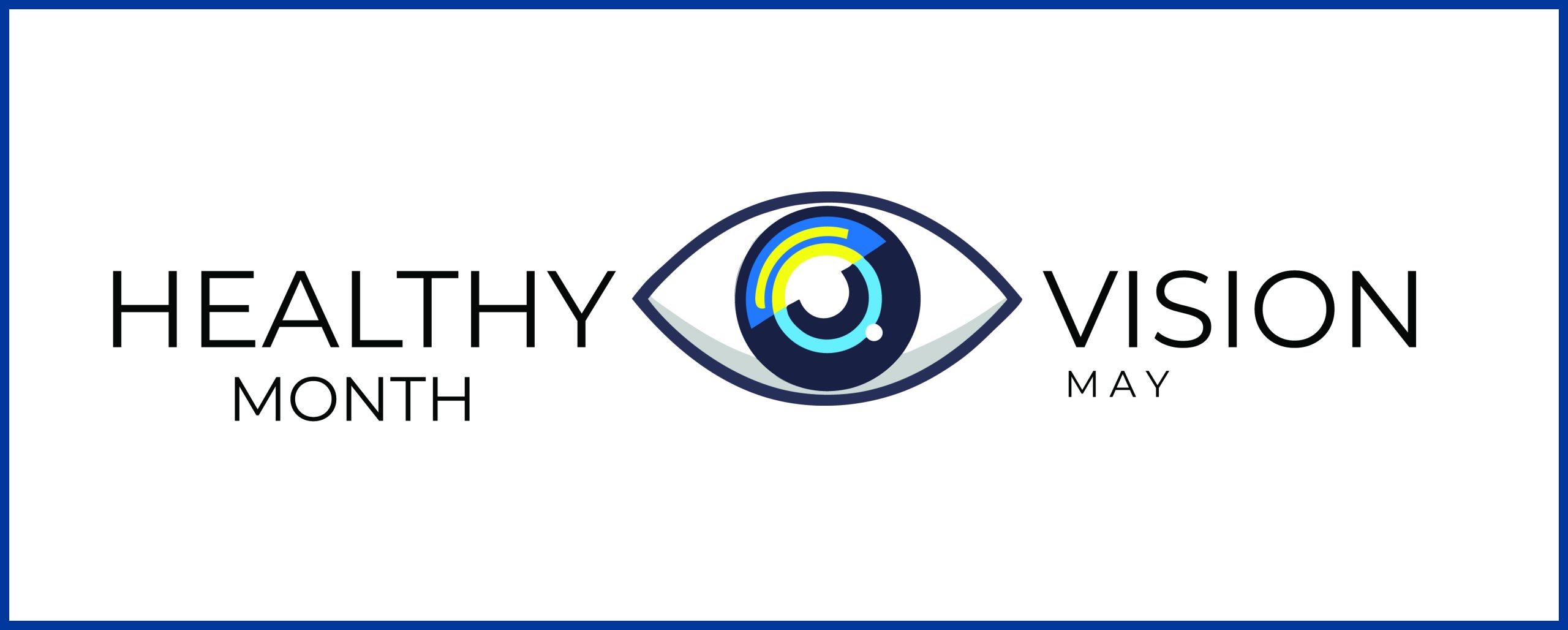
Welcome to May, when we celebrate Healthy Vision Month! As we embark on this month-long journey of raising awareness about the importance of eye health, the Discovery Eye Foundation is thrilled to join the cause.
Our vision is a precious gift and it’s crucial to take proactive steps to maintain it. In this blog post, we’ll explore the significance of Healthy Vision Month and share valuable tips to help you safeguard your eyesight for years to come.
Healthy Vision Month is more than just an annual observance; it’s a reminder of the critical role that vision plays in our daily lives. Our eyes enable us to experience the world around us, from admiring breathtaking landscapes to connecting with loved ones through meaningful eye contact and so much more. According to the American Academy of Ophthalmology, approximately 75% of adults use some form of vision correction, highlighting the prevalence of vision issues in society. However, many people overlook the importance of regular eye care until they encounter vision problems. By dedicating the month of May to promoting eye health awareness, we can empower individuals to prioritize their vision and take proactive measures to preserve it.
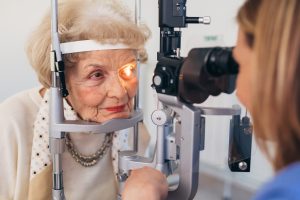 Here are a few ways you can help protect your vision
Here are a few ways you can help protect your vision
- Get an annual comprehensive dilated eye exam.
- Know your family’s eye health history. It’s important to know if anyone has been diagnosed with an eye disease or condition, since some are hereditary.
- Eat right to protect your sight: In particular, eat plenty of dark leafy greens such as spinach, kale, or collard greens, and fish that is high in omega-3 fatty acids such as salmon, albacore tuna, trout, and halibut. Visit Eye Cook for eye healthy recipes.
- Maintain a healthy weight and exercise regularly.
- Wear protective eyewear when playing sports or doing activities around the home, such as painting, yard work, and home repairs.
- Quit smoking or never start.
- Wear sunglasses that block 99 -100 percent of ultraviolet A (UVA) and ultraviolet B (UVB) radiation.
- Wash your hands before taking out your contacts and cleanse your contact lenses properly to avoid infection.
- Practice workplace eye safety.
Taking care of your eyes also may benefit your overall health. People with vision problems are more likely than those with good vision to have diabetes, poor hearing, heart problems, high blood pressure, lower back pain and strokes, as well as have increased risk for falls, injury and depression.
In addition to your comprehensive dilated eye exams, visit an eye care professional if you have:
- Decreased vision
- Eye pain
- Drainage or redness of the eye
- Double vision
- Diabetes
- New floaters (tiny specks that appear to float before your eyes)
- Circles (halos) around light sources or if you see flashes of light
For this Healthy Vision Month, take care of your eyes to help them last a lifetime.





 Don’t smoke. Smoking increases your risk for age-related macular degeneration, cataract, and other eye diseases and conditions that can damage the optic nerve.
Don’t smoke. Smoking increases your risk for age-related macular degeneration, cataract, and other eye diseases and conditions that can damage the optic nerve. Wear protective eyewear when outdoors. Protecting your eyes from the sun’s ultraviolet rays when you are outdoors is vital for your eye health. Wearing sunglasses that block 99 to 100 percent of both UV-A and UV-B radiation.
Wear protective eyewear when outdoors. Protecting your eyes from the sun’s ultraviolet rays when you are outdoors is vital for your eye health. Wearing sunglasses that block 99 to 100 percent of both UV-A and UV-B radiation. Know your family history. Talk to your family members about their eye health history. It’s important to know if anyone has been diagnosed with a disease or condition since many are hereditary, such as glaucoma, macular degeneration, and diabetes . This will help determine if you are at higher risk for developing an eye disease or condition.
Know your family history. Talk to your family members about their eye health history. It’s important to know if anyone has been diagnosed with a disease or condition since many are hereditary, such as glaucoma, macular degeneration, and diabetes . This will help determine if you are at higher risk for developing an eye disease or condition. Consider a multivitamin. Vitamins C, E and the mineral zinc have been shown to promote eye health. Vitamins with Lutein and Zeaxanthin have been known to help patients with moderate to severe age-related macular degeneration.
Consider a multivitamin. Vitamins C, E and the mineral zinc have been shown to promote eye health. Vitamins with Lutein and Zeaxanthin have been known to help patients with moderate to severe age-related macular degeneration. Give your eyes a rest. If you spend a lot of time at the computer or focusing at any one distance, you sometimes forget to blink, resulting in dryness and eye fatigue. Every 20 minutes, look away about 20 feet in front of you for 20 seconds. This can help reduce eyestrain. Consider using a lubricant eye drop during long periods of intense eye use and rest your eyes for 5 minutes.
Give your eyes a rest. If you spend a lot of time at the computer or focusing at any one distance, you sometimes forget to blink, resulting in dryness and eye fatigue. Every 20 minutes, look away about 20 feet in front of you for 20 seconds. This can help reduce eyestrain. Consider using a lubricant eye drop during long periods of intense eye use and rest your eyes for 5 minutes.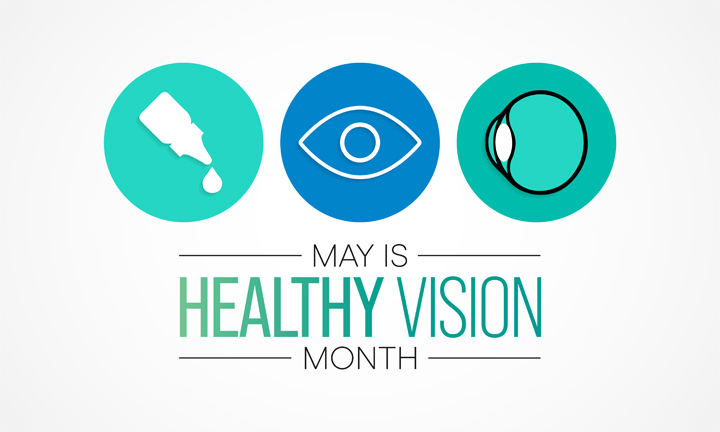

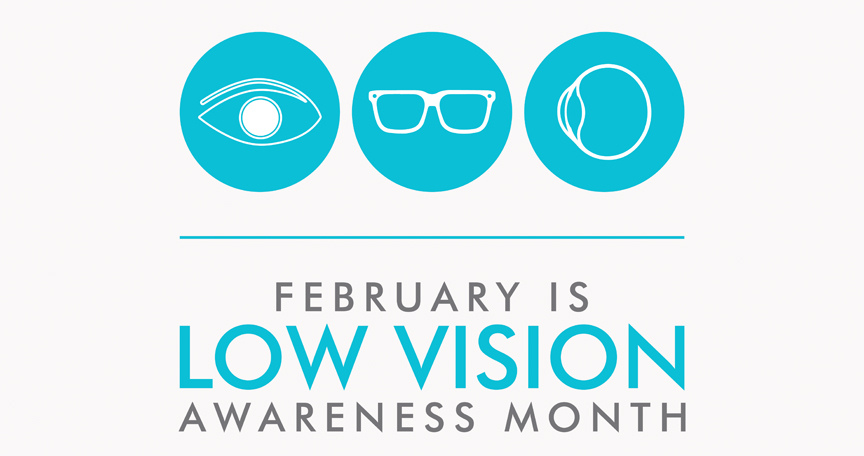
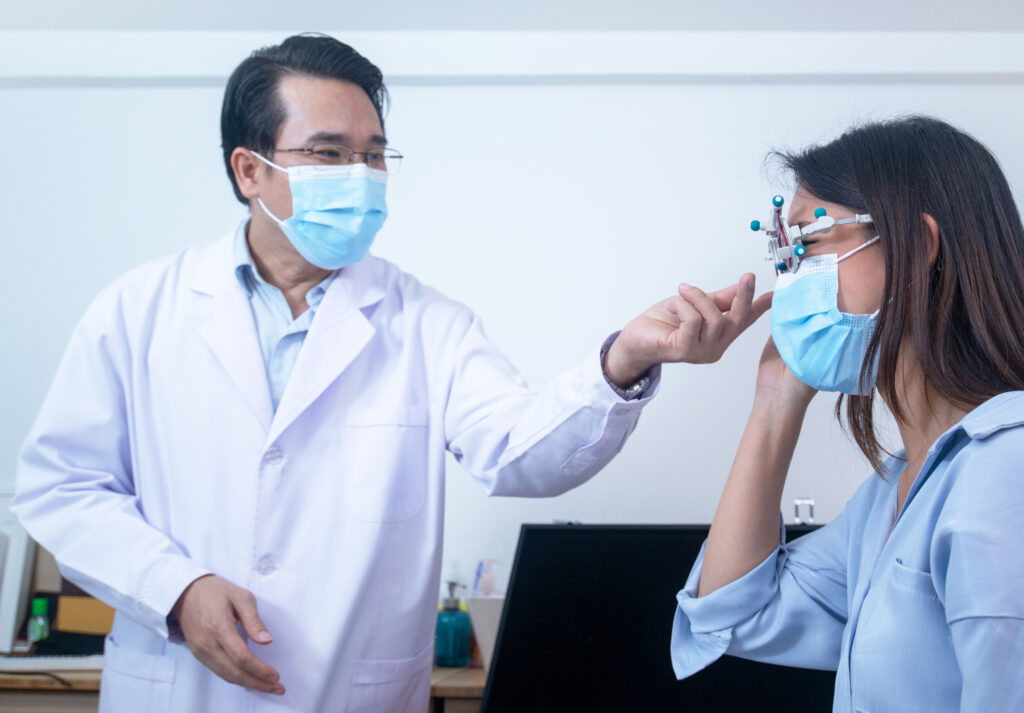 Taking care of your health is critical and you may have concerns related to eye health as a result of the COVID-19 pandemic. The offices of Ophthalmologists and Optometrists are resuming the delivery of comprehensive eye and vision care and implementing new protocols to provide care in a safe and healthy environment.
Taking care of your health is critical and you may have concerns related to eye health as a result of the COVID-19 pandemic. The offices of Ophthalmologists and Optometrists are resuming the delivery of comprehensive eye and vision care and implementing new protocols to provide care in a safe and healthy environment.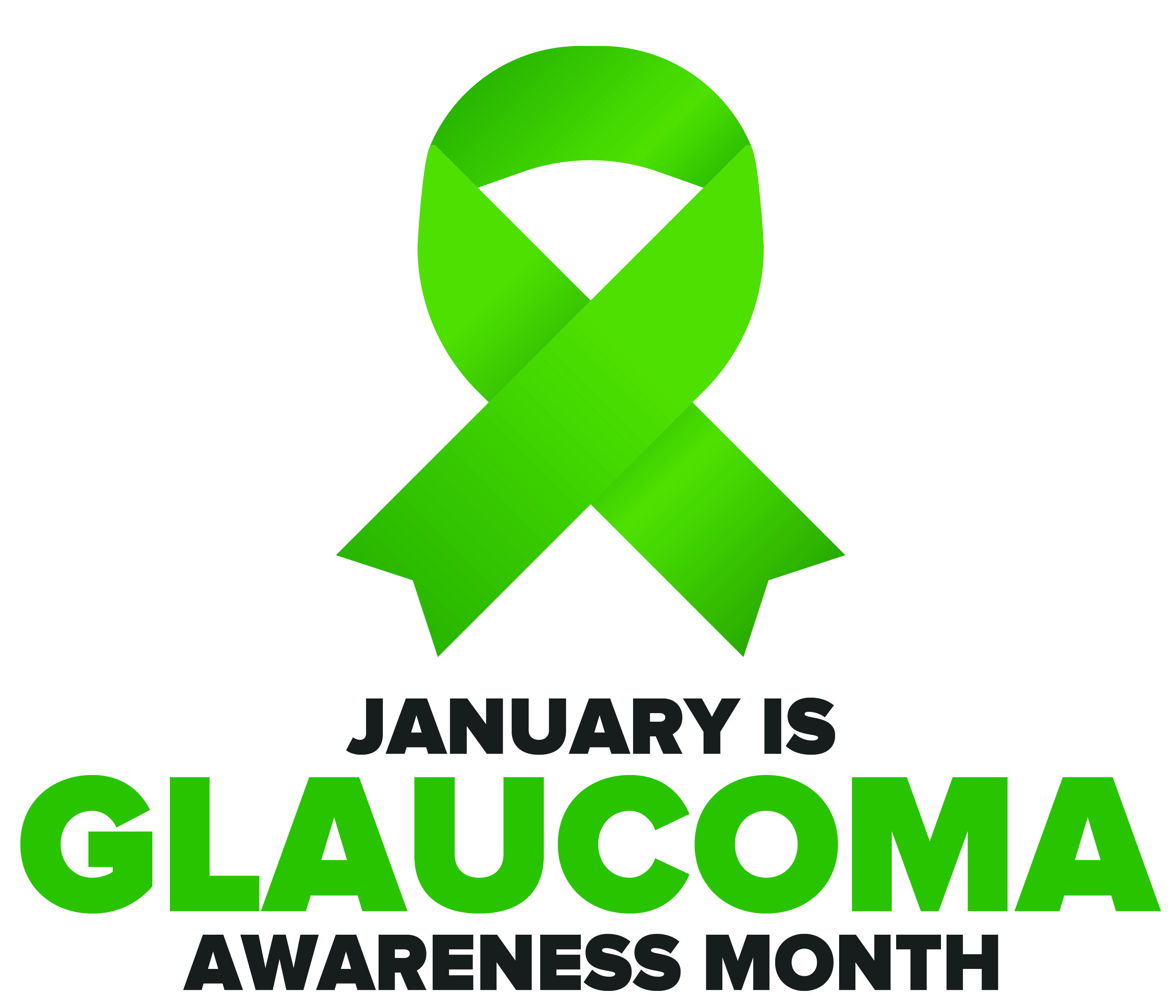 National Glaucoma Awareness Month reminds all of us to get regular eye exams and show support for those suffering from this condition.
National Glaucoma Awareness Month reminds all of us to get regular eye exams and show support for those suffering from this condition. 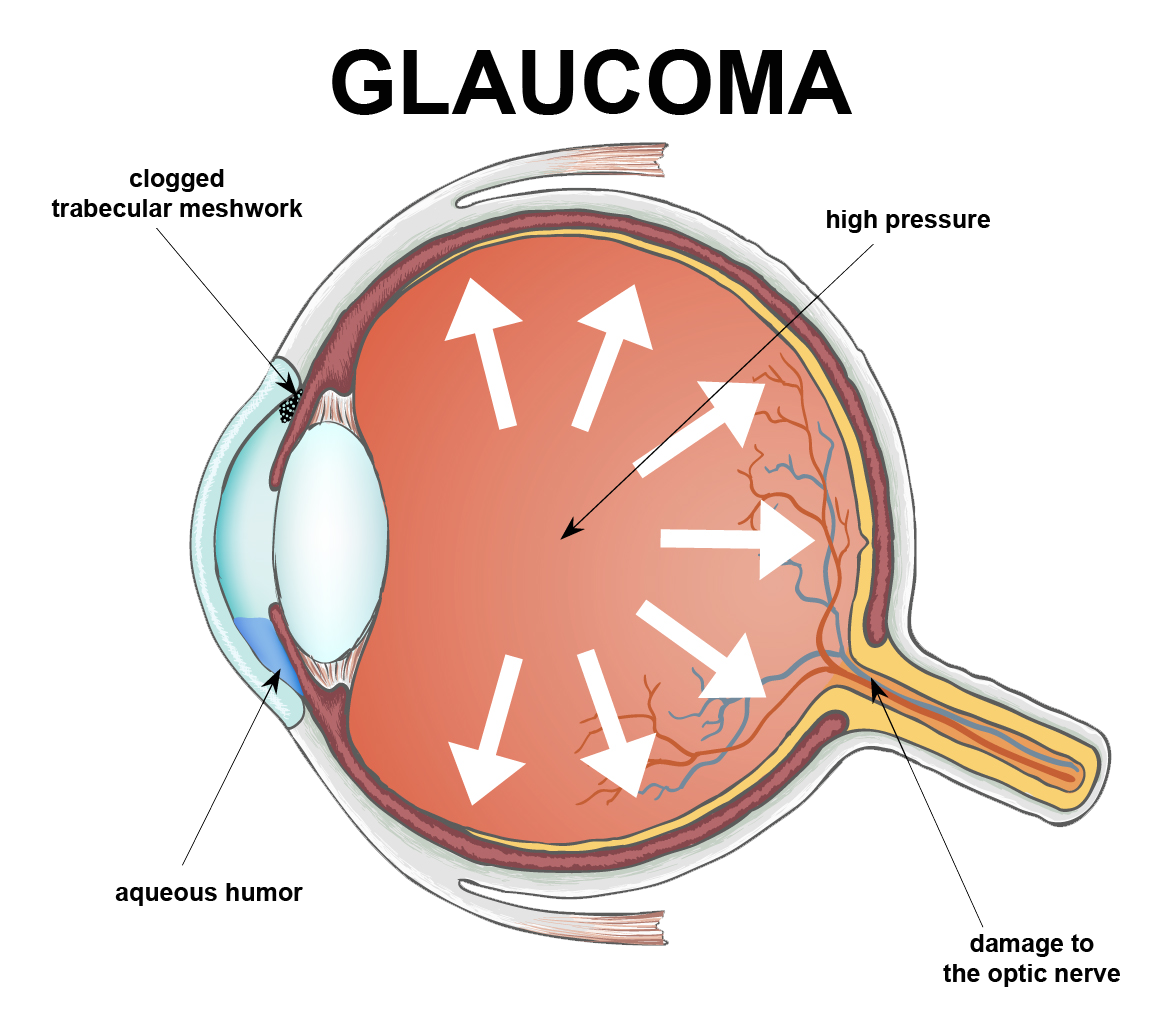


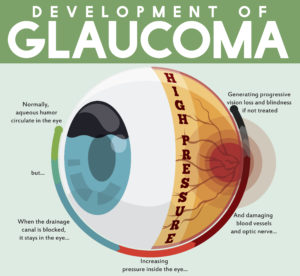 tic nerve, a part of the central nervous system that carries visual information from the eye to the brain.
tic nerve, a part of the central nervous system that carries visual information from the eye to the brain.